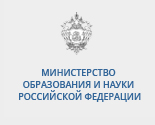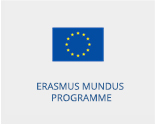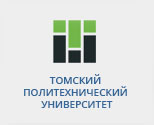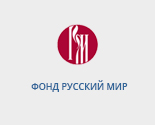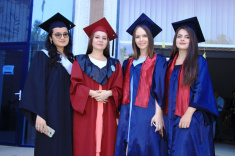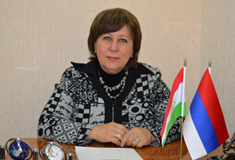Вестник РТСУ
Маликова Р.Э. Формирование конкурентоспособности работников на предприятиях: зарубежный опыт
УДК 005.332.4: 658.3(1-85)
ФОРМИРОВАНИЕ КОНКУРЕНТОСПОСОБНОСТИ РАБОТНИКОВ НА ПРЕДПРИЯТИЯХ: ЗАРУБЕЖНЫЙ ОПЫТ
Маликова Рухшона Эхтиромовна
Преподаватель кафедры финансов и кредита,
докторант PhD кафедры экономической теории и мировой экономики
Российско-Таджикский (Славянский) университет
734025, Республика Таджикистан, Душанбе, ул. М. Турсунзода, 30
Тел.: (+992) 227 54 59; (+992) 934 80 40 60 (м.)
Статья посвящена вопросу конкурентоспособности работника на предприятии и факторам, которые усиливают или ослабляют его конкурентоспособность, и способов их коррекции на основании положительного опыта зарубежных стран. Изучены теоретические разработки в области конкурентоспособности работников на зарубежных предприятиях с учетом применения принципов системного подхода и уточнения соответствующей общей цели, подтверждает актуальность разработки.
Автор сопоставляет такие модели формирования конкурентоспособности персонала, как японская, американская и западноевропейская. Отмечено, что в последние годы в зарубежных странах в формировании конкурентоспособности персонала наблюдается сочетание этих моделей управления, что не учитывает психологические, культурные и социально-исторические особенности каждой страны.
Выявлена двусторонняя связь между уровнем конкурентоспособности и уровнем развития трудового потенциала. Обосновано, что современные тенденции в управлении персоналом носят глобальный характер и отражают эффективность функционирования и достижения целей наиболее успешных компаний развитых стран в части создания высокоэффективных систем формирования конкурентоспособности работников для реализации собственного трудового потенциала.
По результатам проведенного анализа зарубежного опыта управления персоналом предложены организационно-экономические условия для его использования на отечественных предприятиях.
Ключевые слова: конкурентоспособность; конкуренция; работник; персонал; зарубежный опыт, управление персоналом.
Литература
1. Пылаев И.Н. Компоненты конкурентоспособности работников и области их развития на предприятии // Экономика и предпринимательство. – 2015. – №6-1 (59). –С.509-513.
2. Хохлова И.И. Управление конкурентоспособностью персонала предприятий легкой промышленности: дис… канд. экон. наук: 08.00.05 / Хохлова Инна Ивановна. – М., 2013. – 173с.
3. Alvarado-Vargas M.J., Hermans M., Newburry W. What’s in it for me? Local employees’ anticipated career opportunities derived from firm internationalization // Journal of Business research. – 2020. – Vol.117. – P.201-211.
4. Husaina Z., Dayanb M., Di Benedettoc C.A. The impact of networking on competitiveness via organizational learning, employee innovativeness, and innovation process: A mediation model // Journal of Engineering and technology management. – 2016. – Vol.40. – P.15-28.
5. Martin R.L. A Study on the Factors of Regional Competitiveness: A draft final report for The European Commission Directorate-General Regional Policy [Electronic resource] // Cambridge econometrics, 2003. – Electronic resource: http://ec.europa.eu/regional_policy/sources/docgener/studies/pdf/3cr/competitiveness.pdf
6. Pesic M.A., Milic V.J., Stankovic J. Application of VRIO framework for analyzing human resources // Tourism and Management Studies International Conference Algarve. – 2012. – Vol.2. – Р. 575-586.
7. Rachwał T., Bogu M. The competitiveness of industrial enterprises in European Union countries // Current problems of competitiveness improvement in national economies and enterprises. – 2012. – Vol.1. – Р.133-156.
8. Strohmeier S. Employee relationship management – Realizing competitive advantage through information technology? // Human Resource Management Review. – 2013. – Vol.23, Issue 1. – P. 93-104.
9. Tordera N., Peiró J.M., Ayala Y., Villajos E., Truxillo D. The lagged influence of organizations' human resources practices on employees' career sustainability: The moderating role of age // Journal of Vocational Behavior. – 2020. – Vol.120. – P.431-443.
10. Ye Haobin B., Wing Sun Tung V., Li J.J., Zhu H. Leader humility, team humility and employee creative performance: The moderating roles of task dependence and competitive climate // Tourism Management. – 2020. – Vol.81. – P.138-170.
11. European Centre for the Development of Vocational (CEDEFOP) [Electronic resource]. – Electronic resource: https://www.cedefop.europa.eu/en/themes/identifying-skills-needs (дата обращения: 27.07.2020).
FORMATION OF COMPETITIVENESS OF EMPLOYEES IN THE ENTERPRISES: FOREIGN EXPERIENCE
Malikova Rukhshona Ehtiromovna
Lecturer at the chair of finance and credit,
PhD candidate of the chair of economic theory and world economy
Russian-Tajik (Slavonic) university
734025, Republic of Tajikistan, Dushanbe, M. Tursunzade, 30
Ph.: (+992) 227 54 59; (+992) 934 80 40 60 (m.)
The purpose of the article is to study the importance of an employee's competitiveness and factors that enhance or weaken his competitiveness, and ways to correct them based on the positive experience of foreign countries. Theoretical developments in the field of competitiveness of workers at foreign enterprises are studied, taking into account the application of the principles of a systematic approach and clarification of the corresponding general goal, confirms the relevance of the development.
The author compares such models of the formation of personnel competitiveness as Japanese, American and Western European. It is noted that in recent years in foreign countries in the formation of personnel competitiveness, there is a combination of these management models, which does not take into account the psychological, cultural and socio-historical characteristics of each country.
A two-way relationship between the level of competitiveness and the level of development of labor potential is revealed. It is proved that modern trends in personnel management are global in nature and reflect the efficiency of functioning and achieving the goals of the most successful companies in developed countries in terms of creating highly effective systems for forming the competitiveness of employees to realize their own labor potential.
Based on the results of the analysis of foreign experience in personnel management, organizational and economic conditions for its use at domestic enterprises are proposed.
Keywords: competitiveness; competition; worker; staff; foreign experience, personnel management.
References
1. Pylaev I.N. Components of the competitiveness of workers and the area of heir development at the enterprise // Economy and Entrepreneurship. – 2015. – №6-1 (59). –P.509-513.
2. Khokhlova I.I. Management of competitiveness of personnel of light industry enterprises: dis ... cand. econom. sciences: 08.00.05 / Khokhlova Inna Ivanovna. – M., 2013. - 173p.
3. Alvarado-Vargas M.J., Hermans M., Newburry W. What’s in it for me? Local employees' anticipated career opportunities derived from firm internationalization // Journal of Business research. – 2020. – Vol.117. – P.201-211.
4. Husaina Z., Dayanb M., Di Benedettoc C.A. The impact of networking on competitiveness via organizational learning, employee innovativeness, and innovation process: A mediation model // Journal of Engineering and technology management. – 2016. – Vol.40. – P.15-28.
5. Martin R.L. A Study on the Factors of Regional Competitiveness: A draft final report for The European Commission Directorate-General Regional Policy [Electronic resource] // Cambridge econometrics, 2003. – Access mode: http://ec.europa.eu/regional_policy/sources/docgener/studies/pdf/3cr/competitiveness.pdf
6. Pesic M.A., Milic V.J., Stankovic J. Application of VRIO framework for analyzing human re-sources // Tourism and Management Studies International Conference Algarve. – 2012. – Vol.2. – P. 575-586.
7. Rachwał T., Bogu M. The competitiveness of industrial enterprises in European Union countries // Current problems of competitiveness improvement in national economies and enterprises. – 2012. – Vol.1. – P.133-156.
8. Strohmeier S. Employee relationship management - Realizing competitive advantage through information technology? // Human Resource Management Review. – 2013. – Vol.23, Issue 1. – P.93-104.
9. Tordera N., Peiró J.M., Ayala Y., Villajos E., Truxillo D. The lagged influence of organizations 'human resources practices on employees' career sustainability: The moderating role of age // Journal of Vocational Behavior. – 2020. – Vol.120. – P.431-443.
10. Ye Haobin B., Wing Sun Tung V., Li J.J., Zhu H. Leader humility, team humility and employee creative performance: The moderating roles of task dependence and competitive climate // Tourism management. – 2020. – Vol.81. – P.138-170.
11. European Center for the Development of Vocational (CEDEFOP) [Electronic resource]. – Access mode: https://www.cedefop.europa.eu/en/themes/identifying-skills-needs (date accessed: 07/27/2020).
ТАШАККУЛИ РАҚОБАТПАЗИРИИ КОРМАНДОН ДАР КОРХОНАҲО: ТАҶРИБАИ ХОРИҶӢ
Маликова Рухшона Эхтиромовна
Муаллими кафедраи молия ва қарз,
докторанти PhD кафедраи назарияи иқтисодӣ ва иқтисоди ҷаҳонӣ
Донишгоҳи (Славянии) Россия ва Тоҷикистон
734025, Ҷумҳурии Тоxикистон, Душанбе, М. Турсунзода, 30
Тел.: (+992) 227 54 59; (+992) 934 80 40 60 (м.)
Мақсади мақола аз омӯзиши аҳамияти рақобатпазирии кормандон ва омилҳое, ки рақобатпазирии вайро қувват медиҳанд ва ё суст мегардонанд, инчунин тарзҳои идоракунии онҳо мувофиқи таҷрибаи мусбати кишварҳои хориҷӣ иборат аст. Коркардҳои назариявӣ дар соҳаи рақобатпазирии кормандон дар корхонаҳои хориҷӣ бо инобати принсипҳои муносибати бонизом ва аниқ намудани мақсади умумии мувофиқ, мубрамнокии коркардро тасдиқ менамоянд.
Муаллиф чунин амсилаҳои ташаккули рақобатпазирии кормандонро, аз қабили амсилаҳои ҷопонӣ, амрикоӣ ва аврупоии ғарбӣ ба риштаи муқоиса кашидааст. Зикр мегардад, ки солҳои охир дар кишварҳои хориҷӣ баҳри ташаккули рақобатпазирии кормандон тавъам омадани ин амсилаҳои идоракунӣ ба назар мерасад, ки ин хусусиятҳои равонӣ, фарҳангӣ ва иҷтимоиву таърихии ҳар як кишварро ба инобат намегирад.
Алоқаи дутарафаи байни рақобатпазирӣ ва сатҳи нерӯи меҳнатӣ ошкор карда шудааст. Исбот карда мешавад, ки тамоюлоти муосири идоракунии кормандон хусусияти глобалӣ дошта, самаранокии амалкард ва ноилшавии мақсадҳоро дар ширкатҳои пешрафтаи кишварҳои мутараққӣ дар қисмати таъсис додани низомҳои мутараққии ташаккули рақобатпазирии кормандон баҳри татбиқи нерӯи шахсии меҳнатӣ ошкор кардааст.
Аз рӯйи натиҷаҳои таҳлили гузаронидашудаи таҷрибаи хориҷии идора кардани кормандон як қатор шартҳои ташкиливу иқтисодӣ барои истифода бурдани он дар корхонаҳои ватанӣ пешниҳод гардидаанд.
Калидвожаҳо: рақобатпазирӣ; рақобат; кормандон; ҳайати ёвар; таҷрибаи хориҷӣ, идоракунии ҳайати ёвар.
- Admission
- Undergraduates
-
Univercity
-
Сведения об образовательной организации
- Основные сведения
- Структура и органы управления образовательной организацией
- Документы
- Образование
- Образовательные стандарты
- Руководство. Педагогический (научно-педагогический) состав
- Материально-техническое обеспечение и оснащенность образовательного процесса
- Стипендии и иные виды материальной поддержки
- Платные образовательные услуги
- Международное сотрудничество
- Финансово-хозяйственная деятельность
- Доступная среда
- Канцелярия РТСУ
- Прочие сведения
- Ректор
- Программа развития университета
- Профсоюз
- Библиотека
- Институты
-
Центры
- Русский центр «Русский мир»
- Центр культуры
- Радиолаборатория РТСУ
- Учебная ТВ-студия РТСУ
- Центр таджикского языка
- Центр тестирования по русскому языку
- Ресурсный центр по туризму
- Центр геополитических исследований
- Междисциплинарный центр региональных исследований
- Информационно-ресурсный центр ООН в РТ
- Центр обучения 1С-бухгалтерии
- Информационный центр РТСУ
- Центр русского языка и культуры
- НИЦ по противодействию терроризма и экстремизма
- ТЕХНОПАРК РТСУ
- Школа РТСУ
- СМИ о РТСУ
- РТСУ в цифрах и фактах
- РТСУ в формате фотообъектива
- Полезные закачки
-
Сведения об образовательной организации
-
Faculties of RTSU
- Faculty of Economics
- Faculty of History and International relations
- Faculty of Law
- Faculty of Management and Information Technologies
- Faculty of Philology
-
Scientific work
- Научные направления университета
- Научно-исследовательские проекты
- Публикационная активность
- Публикация преподователей РТСУ за рубежом
- The University Bulletin
- Диссертационные советы
- Аспирантура
- Молодые ученые
- Научно-исследовательская работа студентов
- Координация программ, проектов и грантов в области образования и науки
- International activities
- Educational work
- More

